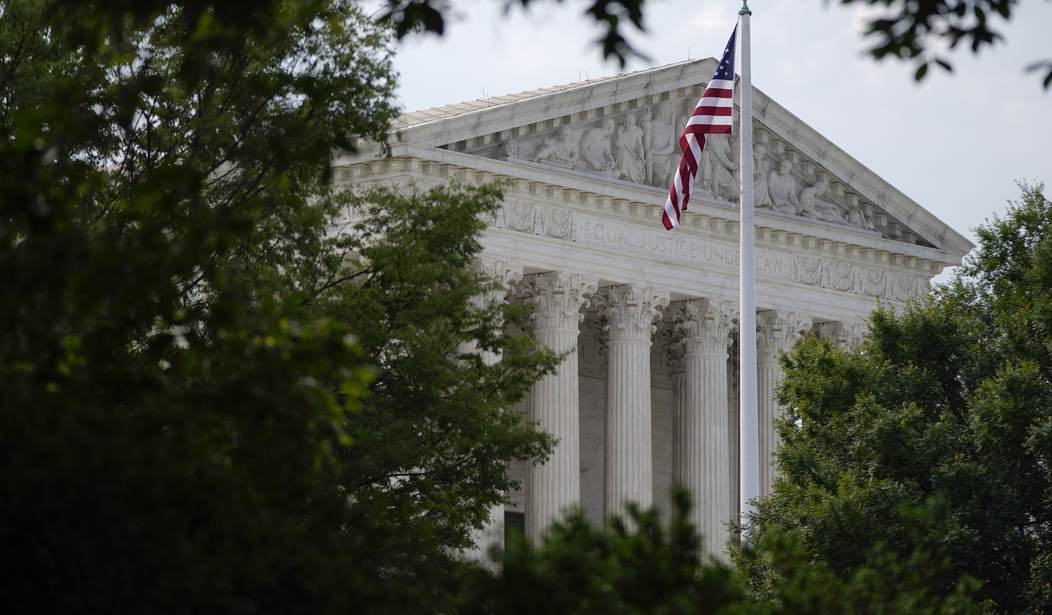While the Supreme Court has sidestepped both New York’s post-Bruen carry restrictions and Illinois’ ban on so-called assault weapons and high capacity magazines in recent months, likely because both cases involved emergency appeals, justices are set to consider another case this Thursday that has made its way to the Court under more ordinary circumstances… but one that could have major implications for gun control laws going forward.
The case is known as U.S. v. Rahimi, and its centered around the domestic violence restraining order issued against Zachey Rahimi that prohibited from owning firearms. The Fifth Circuit Court of Appeals ruled earlier this year that the federal statute in question is unconstitutional under the Bruen test; not because the judges on the panel decided domestic violence is a minor concern, but because the Department of Justice’s assertion that only “law-abiding citizens” possess the right to keep and bear arms is so broad that its without any limiting principle. From the Fifth Circuit’s opinion:
Indeed, the upshot of the Government’s argument is that the Second Amendment right can be readily divested, such that “a person could be in one day and out the next: . . . his rights would be stripped as a self-executing consequence of his new status.” But this turns the typical way of conceptualizing constitutional rights on its head. And the Government’s argument reads the Supreme Court’s “law-abiding” gloss so expansively that it risks swallowing the text of the amendment.
Further, the Government’s proffered interpretation of “law-abiding” admits to no true limiting principle. Under the Government’s reading, Congress could remove “unordinary” or “irresponsible” or “non-lawabiding” people—however expediently defined—from the scope of the Second Amendment. Could speeders be stripped of their right to keep and bear arms? Political nonconformists? People who do not recycle or drive an electric vehicle? One easily gets the point: Neither Heller nor Bruen countenances such a malleable scope of the Second Amendment’s protections; to the contrary, the Supreme Court has made clear that “the Second Amendment right is exercised individually and belongs to all Americans,” Heller, 554 U.S. at 581. Rahimi, while hardly a model citizen, is nonetheless among “the people” entitled to the Second Amendment’s guarantees, all other things equal.
Rahimi is probably not a model citizen. In addition to the domestic violence restraining order, he’s accused of multiple shootings in the Dallas/Forth Worth area. But the state of Texas didn’t try to hold Rahimi without bond in those cases, which would have also kept him away from guns. Instead, they relied on a civil order of protection to deny him the ability to lawfully possess a firearm; a legal shortcut that might not be lawful after all.
Now the Supreme Court is set to consider Rahimi’s case in conference this Thursday, and with appellate courts starting to split on several other prohibited persons statute all eyes on are the justices to see if they’ll take up the case or allow the Fifth Circuit’s decision to stand. NBC News provided its own slanted coverage of the case, and while its report is just as biased as you’d expect, there was one passage that I think is largely correct.
The path to victory likely involves winning the votes of Chief Justice John Roberts and Justice Brett Kavanaugh.
Although both were part of the 6-3 conservative majority in Bruen, Kavanaugh wrote a separate concurring opinion joined by Roberts in which he outlined what he called “the limits of the court’s decision,” making it clear that the Second Amendment does allow for gun regulations.
Citing previous court rulings, Kavanaugh specifically highlighted the prohibition on the possession of firearms by felons and people with mental illnesses as an example of laws that were not under threat.
I suspect that Roberts and Kavanaugh are the most likely justices on the conservative wing of the Court to uphold Rahimi’s conviction, but I don’t think it’s a done deal by any means. The lack of limiting principle in the DOJ’s argument is a valid concern on the part of the judiciary, and under the Bruen test laid out by the Supreme Court last year the government strained to find any true historical analogue to a prohibition on gun ownership because of a civil order issued by a court.
The earliest we’ll learn whether SCOTUS has accepted the Rahimi case will be next Monday when the Court issues its orders from this week’s conference. I won’t be surprised if there are four justices who are ready to hear the DOJ’s appeal, but acceptance doesn’t guarantee that the Biden administration’s argument is going to carry the day if and when Rahimi is heard by the highest court in the land. If the Court follows its own test instead of just relying on the status quo I think there’s a very good chance that the Fifth Circuit’s verdict will stand… but first we have to see if SCOTUS will step in or stand by once again.









Join the conversation as a VIP Member